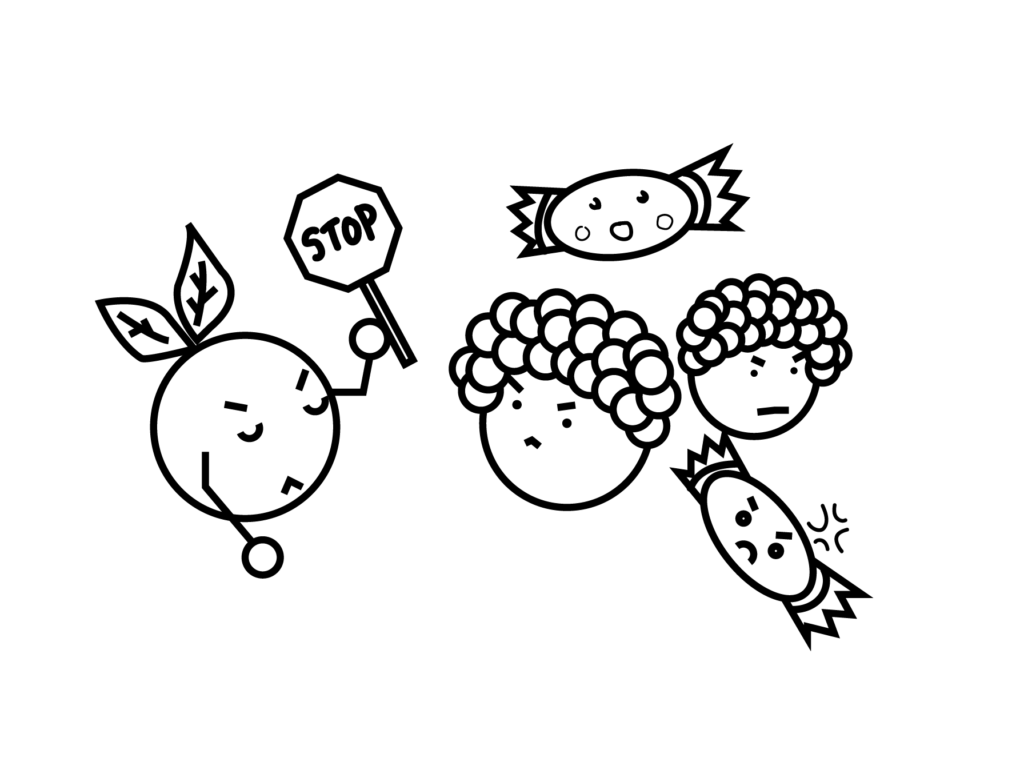Para el texto en español [PULSA AQUI]
If you want to read the first part of this series please go [HERE]/Si quieres leer la primera parte de esta serie pulsa [AQUI]
Hello! Welcome to the second part of the three-part series: HEALTH BENEFITS OF GREEN TEA.
Today we are discussing the physical benefits of green tea. However, we will also touch on other effects that should be considered as green tea can affect some of the body’s processes or certain nutrient absorption. This post is not meant to be used as medical advice so please make sure to consult with your health care provider if you have any medical conditions.
Green tea has been prized as a health drink since ancient times and the association between tea consumption, especially green tea, and human health has long been appreciated1. For that reason, there is much scientific research that talks about the health benefits of green tea. However, most of the studies have only been done on animals or in vitro so it will be interesting to wait for more research that has been done on humans to truly confirm the benefits of our loved green tea.
Matcha is the tea that can give you most of the benefits of green tea as you consume the grounded whole leaf. But, if like me, likes to enjoy a matcha latte in the morning you should be aware that some proteins present in soy milk, casein, or whey could bind with catechins and could reduce the antioxidant properties of green tea21,22.
IT IS MOSTLY ABOUT THE ANTIOXIDANTS!
 Gotta catch them all free radicals!
Gotta catch them all free radicals!
Oxidative stress and inflammation are big factors in a lot of chronic conditions and the catechins in green tea help prevent cell damage and oxidation by scavenging free radicals3. Some of the benefits that antioxidants can give to our body are:
ANTICARCINOGENIC:
The mechanisms behind the anti-cancer effect of epigallocatechin-3-gallate (EGCG) may be related to inhibiting tumour proliferation, antioxidant effects, and suppressing the inflammatory processes contributing to transformation, hyperproliferation, and formation of cancer1,3,4.
ANTI-INFLAMMATORY:
Inflammation is a protective response from the body against injury or infection. The antioxidants of green tea reduce the oxidative stress chain reaction that would be part of the inflammatory response in the body in conditions like arthritis5,6,7.
ANTIBACTERIAL AND ANTIVIRAL:
Studies have shown that an unknown component of green tea can inhibit the growth of E. coli, Staphylococcus aureus, Salmonella typhimurium, Listeria monocytogenes, and Porphyromonas gingivalis18. In one study, green tea kombucha was the only one that had antibacterial properties due to its high catechin content19. EGCG appears to have a broad-spectrum antiviral effect and there are some studies that test the effects of green tea against COVID-1920. Matsu-san also covers this topic HERE.
CARDIOPROTECTIVE:
Catechins are believed to reduce the amount of cholesterol in blood thus reducing the risk of coronary heart disease. Plus, the anti-inflammatory effects mentioned previously could reduce the risk of heart attack3,8.
LOWERS BLOOD GLUCOSE LEVELS:
Have you ever noticed that if after a nice dessert or a fatty meal you drink a cup of green tea you feel less groggy? Green tea decreases glucose production by promoting insulin secretion and reducing the absorption of fats and sugars from the gastrointestinal tract1,7,18. This is one of the reasons why I personally drink green tea after sugary meals, so I do not get a sugar crash. That is said, be careful in having a lot of green tea whilst fasting as it can cause the opposite effect and cause you hypoglycemia.
REDUCES FAT LEVELS:
Green tea could help in the reduction of visceral fat (as well as exercise, diet, and a healthy lifestyle) because of the effects mentioned previously4,7.8,9. It can also reduce the among of lipids in the liver17.
IMPROVES ORAL HEALTH:
Studies show that green tea can decrease the risk of cavities, plaque, and teeth erosion due to its antibacterial effects10,11.
ANTIAGING:
Although it is amazing to accept our body’s aging process and we should love ourselves as we are, green tea can help to slow it down with its antioxidant properties. Topical green tea is very helpful against ultraviolet radiation (UVR), skin spots, wrinkles, and sebum production12,13.
ADVERSE EFFECTS OF GREEN TEA
We love green tea, but we must be mindful of some of its side effects if consumed in huge quantities, medical health conditions, and genetics.
 INHIBITS IRON ABSORPTION (AND OTHER MEDICATIONS):
INHIBITS IRON ABSORPTION (AND OTHER MEDICATIONS):
The polyphenols of green tea may interfere with iron absorption and decrease iron availability from the diet1, 2,16. So, it is recommended that you do not drink green tea alongside iron-rich foods or iron supplements. It can also inhibit Monoamine oxidase inhibitors (MAOI), lithium, adenosine, and blood thinners16.
GASTROINTESTINAL UPSET:
I do not know about you but sometimes if I have a very rich matcha on an empty stomach I can feel a bit off afterward. Green tea´s tannins can increase acid production in the stomach and can cause heartburn14,16.
LIVER TOXICITY:
Pharmacological and toxicological evidence does indicate that green tea polyphenols can in fact cause oxidative stress and liver toxicity in vivo at certain concentrations1,17,18. There has been evidence of people having liver damage due to them taking green tea extract supplements for weight loss18.
BLOOD THINNING:
Catechins inhibit platelet aggregation so it would be difficult for our blood to clot properly. Therefore, it is important that anyone that takes blood thinning medications such as Warfarin or aspirin consult with their health provider15,16.
CAFFEINE:
Caffeine, our loved component, can be beneficial as well as a nuisance to our body. Caffeine can increase our heart rate and makes us anxious and shaky which could affect our ability to function. Caffeine can overstimulate the bladder and people with irritable bladder should be aware of that16.
And these are some of the effects of green tea on our physical health. I have omitted some of the effects on our brains as I am going to cover this in the next issue!
See you later!
The text references are at the end of the post.
[SPANISH VERSION]
¡Hola! Bienvenidos a la segunda parte de tres de la serie: BENEFICIOS PARA LA SALUD DEL TÉ VERDE.
Hoy hablaremos de los beneficios físicos del té verde. Sin embargo, también hablaremos de otros efectos que deberían ser considerados ya que el té verde puede afectar procesos corporales o la absorción de ciertos nutrientes. Este artículo no está destinado a ser usado como recomendación médica así que asegúrate de consultar con tu proveedor de atención médica si tienes alguna condición médica.
El té verde ha sido galardonado como una bebida saludable desde tiempos antiguos y la asociación entre el consumo de té, especialmente el verde, y la salud humana ha sido apreciada durante mucho tiempo1. Por ese motivo hay muchísimas investigaciones científicas que hablan de los beneficios de el té verde para la salud. Sin embargo, muchos de los estudios han sido testados con animales o en vitro así que habrá que esperar a que aparezcan más estudios testados en humanos para realmente confirmar los beneficios de nuestro amado té verde.
Matcha es el té que puede aportarte la cantidad mayor de beneficios ya que se compone de las hojas molidas del té verde. Pero si, como yo, te gusta disfrutar de un matcha latte en la mañana deberías saber que algunas proteínas presentes en la leche soja, caseína o suero podrían unirse con las catequinas y reducir las propiedades antioxidantes del té verde21,22.
¡Y TODO VA SOBRE LOS ANTIOXIDANTES!
 ¡Hazte con todos los radicales libres!
¡Hazte con todos los radicales libres!
El estrés oxidativo y la inflamación son factores mayoritariamente presentes en condiciones crónicas. Las catequinas en el té verde ayudan a prevenir daño celular y oxidación al neutralizar radicales libres3. Algunos de los beneficios de las catequinas para nuestro cuerpo son:
ANTICANCERÍGENO:
Los mecanismos detrás el efecto anticancerígeno de la epigalocatequina -3-galato (EGCG) podrían deberse a la inhibición de la proliferación tumoral, efectos antioxidantes y suprimiendo los procesos inflamatorios contribuyentes en la transformación, hiperproliferación y formación del cáncer1,3,4.
ANTIINFLAMATORIO:
La inflamación es una respuesta protectora de el cuerpo contra una lesión o infección. Los antioxidantes del té verde reducen la reacción en cadena del estrés oxidativo que forma parte de la respuesta inflamatoria en el cuerpo como sería en patologías como la artritis5,6,7.
ANTIBACTERIANO Y ANTIVIRAL:
Estudios han mostrado que un componente desconocido de el té verde puede inhibir la proliferación de E. coli, Staphylococcus aureus, Salmonella typhimurium, Listeria monocytogenes y Porphyromonas gingivalis18. En un estudio, la kombucha de té verde fue la única que mostró propiedades antibacterianas debido a su elevado número de catequinas19. EGCG parece tener un efecto antiviral de amplio espectro y hay algunos estudios que testan los efectos del té verde contra el COVID-1920. Matsu-san habla de este tema AQUÍ (en inglés).
CARDIOPROTECTOR:
Parece que las catequinas podrían reducir el nivel del colesterol en la sangre y por tanto reducir el riesgo de enfermedad cardiovascular. Además, los efectos antiinflamatorios mencionados previamente reducirían el riesgo de un ataque al corazón3,8. ¡No puedes pasar!
¡No puedes pasar!
DISMINUYE LOS NIVELES DE GLUCOSA EN LA SANGRE:
¿Has notado alguna vez que si después de un postre maravilloso o una comida copiosa bebés una taza de té verde te sientes mejor? El té verde disminuye la producción de glucosa ya que promueve la secreción de insulina y reduce la absorción de grasas y azucares de nuestro tracto grastrointestinal1,7,18. Esta es una de las razonas por las que personalmente bebo una taza de té verde después de comer algo dulce y no me entra el sopor. Eso sí, cuidado con tomar mucho té verde en ayunas porque podría provocar el efecto contrario y tener una hipoglicemia.
REDUCE LOS NIVELES DE GRASA:
El té verde podría ayudar en la reducción de grasa visceral (junto a ejercicio, dieta y vida saludable) por los efectos mencionados previamente4,7,8,9. También puede reducir los niveles de lípidos en el hígado17.
MEJORA LA SALUD BUCAL:
Estudios muestran que el té verde puede reducir el riesgo de caries, placa, y erosión dental debido a sus efectos antibacterianos10,11.
ANTIENVEJECIMIENTO:
Aunque es genial que aceptemos nuestro proceso de envejecimiento y nos queramos como somos, el té verde puede ayudar a retrasarlo con sus propiedades antioxidantes. El té verde aplicado en la piel ayuda a protegernos de la radiación ultravioleta (UV), manchas en la piel, arrugas y producción de sebo12,13.
EFECTOS ADVERSOS DEL TÉ VERDE
Nos encanta el té verde pero tenemos que ser conscientes de algunos de sus efectos secundarios si se toma en grandes cuantidades, tenemos condiciones médicas o nuestra genética.
 INHIBE LA ABSORCIÓN DE HIERRO (Y OTROS MEDICAMENTOS):
INHIBE LA ABSORCIÓN DE HIERRO (Y OTROS MEDICAMENTOS):
Los polifenoles del té verde podrían intervenir con la absorción de hierro y disminuir su biodisponibilidad de nuestra dieta1,2,16. Por lo tanto, se recomienda que no bebas té verde junto a comidas ricas en hierro o suplementos de hierro. También puede inhibir los inhibidores MAO (inhibidores de la monoamina oxidasa), litio, adenosina y anticoagulantes16.
PROBLEMAS GASTROINTESTINALES:
No sé vosotros, pero a veces cuando tomo un matcha cargadito por la mañana en ayunas me siento un poco mal luego. Los taninos de el té verde pueden incrementar la producción de ácido en el estómago y provocarte acidez14,16.
HEPATOTOXICIDAD:
Evidencia farmacológica y toxicológica en vivo indica que ciertas concentraciones de polifenoles del té verde pueden causar estrés oxidativo y toxicidad hepática (del hígado)1,17,18. Hay evidencia de gente con daño hepático debido a que han tomado suplementos de extracto de té verde para perder peso18.
ANTICOAGULANTE:
Las catequinas inhiben la agregación plaquetaria y eso causaría que la sangre no coagule como toca. Por lo tanto, es importante que cualquier persona que tome anticoagulantes como Warfarina o aspirina consulte con su médico15,16.
CAFEÍNA:
La cafeína, nuestro componente amado, puede ser beneficiosa y una molestia para nuestro cuerpo. La cafeína puede aumentar nuestro ritmo cardíaco, causar ansiedad o darnos temblores y eso disminuye nuestra capacidad de hacer tareas. La cafeína puede sobre estimular la vejiga y la gente con vejiga hiperactiva debería ser consciente de ello16.
Y estos son alguno de los efectos del té verde en nuestra salud física. ¡He omitido algunos efectos que afectan a nuestro cerebro ya que hablaré de eso en el siguiente artículo!
¡Hasta luego!
REFERENCES/REFERENCIAS
- Chacko, S. M., Thambi, P. T., Kuttan, R., & Nishigaki, I. (2010). Beneficial effects of green tea: a literature review. Chinese medicine, 5, 13. https://doi.org/10.1186/1749-8546-5-13
- Samman, S., Sandström, B., Toft, M. B., Bukhave, K., Jensen, M., Sørensen, S. S., & Hansen, M. (2001). Green tea or rosemary extract added to foods reduces nonheme-iron absorption. The American Journal of Clinical Nutrition, 73(3), 607–612. https://doi.org/10.1093/ajcn/73.3.607
- Bernatoniene, J., & Kopustinskiene, D. M. (2018). The Role of Catechins in Cellular Responses to Oxidative Stress. Molecules (Basel, Switzerland), 23(4), 965. https://doi.org/10.3390/molecules23040965
- Kochman, J., Jakubczyk, K., Antoniewicz, J., Mruk, H., & Janda, K. (2020). Health Benefits and Chemical Composition of Matcha Green Tea: A Review. Molecules, 26(1), 85. https://doi.org/10.3390/molecules26010085
- Chatterjee, P., Chandra, S., Dey, P., & Bhattacharya, S. (2012). Evaluation of anti-inflammatory effects of green tea and black tea: A comparative in vitro study. Journal of advanced pharmaceutical technology & research, 3(2), 136–138. https://doi.org/10.4103/2231-4040.97298
- Arulselvan, P., Fard, M. T., Tan, W. S., Gothai, S., Fakurazi, S., Norhaizan, M. E., & Kumar, S. S. (2016). Role of antioxidants and natural products in inflammation. Oxidative Medicine and Cellular Longevity, 2016, 1–15. https://doi.org/10.1155/2016/5276130
- Tang, G. Y., Meng, X., Gan, R. Y., Zhao, C. N., Liu, Q., Feng, Y. B., Li, S., Wei, X. L., Atanasov, A. G., Corke, H., & Li, H. B. (2019). Health Functions and Related Molecular Mechanisms of Tea Components: An Update Review. International journal of molecular sciences, 20(24), 6196. https://doi.org/10.3390/ijms20246196
- Ratnani, S., & Malik, S. (2022). Therapeutic Properties of Green Tea: A Review. Journal of Multidisciplinary Applied Natural Science, 2(2), 90-102. https://doi.org/10.47352/jmans.2774-3047.117
- Bagheri, R., Rashidlamir, A., Ashtary‐Larky, D., Wong, A., Alipour, M., Motevalli, M. S., Chebbi, A., Laher, I., & Zouhal, H. (2020). Does Green Tea extract enhance the anti‐inflammatory effects of exercise on fat loss? British Journal of Clinical Pharmacology, 86(4), 753–762. https://doi.org/10.1111/bcp.14176
- Thakur, S. R., Thomas, A., & Shetty, S. B. (2016). Anti-microbial efficacy of green tea and chlorhexidine mouth rinses against streptococcus mutans, Lactobacilli spp. and candida albicans in children with severe early childhood caries: A randomized clinical study. Journal of Indian Society of Pedodontics and Preventive Dentistry, 34(1), 65. https://doi.org/10.4103/0970-4388.175518
- Seyedjavadi-Limoodi, S.-F., Moghaddasi, N., Khosraviani, F., & Pouya, S. (2022). Green tea may reduce dental caries and erosion: A systematic review. Avicenna Journal of Dental Research, 14(1), 1–9. https://doi.org/10.34172/ajdr.2022.01
- Feng, M., Zheng, X., Wan, J., Pan, W., Xie, X., Hu, B., Wang, Y., Wen, H., & Cai, S. (2021). Research progress on the potential delaying skin aging effect and mechanism of tea for oral and External use. Food & Function, 12(7), 2814–2828. https://doi.org/10.1039/d0fo02921a
- Saric, S., Notay, M., & Sivamani, R. (2016). Green tea and other tea polyphenols: Effects on sebum production and acne vulgaris. Antioxidants, 6(1), 2. https://doi.org/10.3390/antiox6010002
- Luk, H.-Y., Appell, C., Chyu, M.-C., Chen, C.-H., Wang, C.-Y., Yang, R.-S., & Shen, C.-L. (2020). Impacts of green tea on joint and skeletal Muscle Health: Prospects of Translational Nutrition. Antioxidants, 9(11), 1050. https://doi.org/10.3390/antiox9111050
- Lill, G., Voit, S., Schrör, K., & Weber, A.-A. (2003). Complex effects of different green tea catechins on human platelets. FEBS Letters, 546(2-3), 265–270. https://doi.org/10.1016/s0014-5793(03)00599-4
- Nawab, A., & Farooq, N. (2015). Review on green tea constituents and its negative effects. The Pharma Innovation Journal, 4(1), 21–24.
- Yin, X., Yang, J., Li, T., Song, L., Han, T., Yang, M., Liao, H., He, J., & Zhong, X. (2015). The effect of green tea intake on risk of liver disease: a meta analysis. International journal of clinical and experimental medicine, 8(6), 8339–8346.
- Zhao, T., Li, C., Wang, S., & Song, X. (2022). Green tea (camellia sinensis): A review of its phytochemistry, pharmacology, and toxicology. Molecules, 27(12), 3909. https://doi.org/10.3390/molecules27123909
- Cardoso, R. R., Neto, R. O., dos Santos D’Almeida, C. T., do Nascimento, T. P., Pressete, C. G., Azevedo, L., Martino, H. S., Cameron, L. C., Ferreira, M. S., & Barros, F. A. (2020). Kombuchas from Green and black teas have different phenolic profile, which impacts their antioxidant capacities, antibacterial and antiproliferative activities. Food Research International, 128, 108782. https://doi.org/10.1016/j.foodres.2019.108782
- Liu, J., Bodnar, B. H., Meng, F., Khan, A. I., Wang, X., Saribas, S., Wang, T., Lohani, S. C., Wang, P., Wei, Z., Luo, J., Zhou, L., Wu, J., Luo, G., Li, Q., Hu, W., & Ho, W. (2021). Epigallocatechin gallate from green tea effectively blocks infection of SARS-COV-2 and new variants by inhibiting spike binding to ACE2 receptor. Cell & Bioscience, 11(1). https://doi.org/10.1186/s13578-021-00680-8




